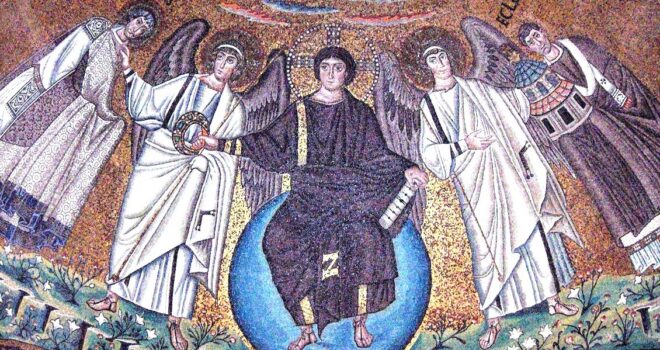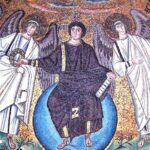A few years back, the Jesuit magazine America published an article titled “The Catholic Case for Communism,” questioning whether communist ideology is compatible with Catholic social teaching. But, in 1937, Pope Pius XI penned a clear condemnation of it, writing:
[It is] deception, skillfully concealed by the most extravagant promises . . . And as every error contains its element of truth, the partial truths . . . astutely presented according to the needs of time and place . . . conceal, when convenient, the repulsive crudity and inhumanity of Communistic principles and tactics.
Did Pope Pius XI have some sort of misunderstanding about communism?
The year before he wrote that, in 1936, around 6,800 priests, religious, and nuns in Spain were murdered by communists. In accordance with Marxist ideology, these communists promised that man could break his chains and live in an earthly paradise if only private property, marriage, and the family were destroyed. Communism’s archenemy then was the great defender of marriage and the family: the Church. Beyond this example, history shows time and time again that wherever communism takes hold, the Church is brutally suppressed.
In a nutshell, the fundamental principle of Christianity is charity based on love of God and neighbor. On the surface, communist principles seem to be based on a love of neighbor, pursuing ultimate equality through the sharing of goods. That is its allure, but as Pope Pius wrote, that is also its “deception,” because, beyond the superficial, a primary motivator for these principles is envy.
Karl Marx, German revolutionary and the father of modern communism, promised earthly paradise, where everyone would be free and equal . . . which would only be realized after a period of totalitarian dictatorship, an era when the government would control every aspect of people’s lives. Ironically, history shows that these dictators all became millionaires: Stalin in Russia, Mao se Tung in China, Fidel Castro in Cuba. Each became absurdly rich, while their countrymen starved.
In last Sunday’s gospel, an envious man tells Christ to make his brother share his inheritance. Christ responds by asking, “Who made me your lawyer?” Christ became man to redeem all humanity, not to level the economic playing field. And when He warned to guard against greed, He was addressing the whole crowd, not just rich people. What does this tell us? It shows that greed is a deadly sin that is not exclusive to certain classes of people. It means poor people can be just as greedy as rich people. It means millionaires can make it to heaven, and poor people can go to hell. Isn’t that interesting? Being materially poor is not in itself an automatic ticket to heaven.
Now we must understand something very important: Christ never called for an equal distribution of goods and services. He did, in fact, tell a rich young man that if he wanted to be perfect, he ought to sell everything he had and give it to the poor. But here is the thing: the rich young man had to be rich before that could happen. You see, someone has to have money before it can be given away. How can anyone be helped if everyone is poor? I never got a job from a poor guy. Have you?
For a good part of his life, Christ depended on people with money to buy His labor and products so He could support Himself and His widowed mother. In the last three years of His life, after hanging up His carpenter apron and most likely selling his privately-owned tools, Christ went into full-time ministry. In order to do that, people with means assisted Him and His disciples. For example, Luke 8:3 mentions women, one of whom was Joanna, the wife of Herod’s steward, who provided for Christ “out of her substance.”
Christ did not deem money evil. What is evil is the love of money, for money is just a tool, not an idol to be worshipped. We are called to use the money we have, within our means, to assist those less fortunate. So, I answer that Christ was not a communist, nor did He preach its ideology.
To draw further from Sunday’s readings—all things are vanity, lamented the distressed Qoheleth, the author of Ecclesiastes. Vanity means “nothing” or “vapor.” After Qoheleth’s life-long toil, his property would go to someone else—he couldn’t take it with him. Thus, all was vanity for Qoheleth.
All things were material for Karl Marx, because he believed there was no spirit, no soul; the body was just a machine that toiled all day. That is not an earthly paradise; it’s an earthly hell. St. Paul preached the importance of meditating on what is above, not of what is on earth, and to put to death the greed that is idolatry. Do that, and understand something about heaven: it is not communist. We are not all issued the same government housing up above. No, Christ said some will have greater rewards than others, meaning there will be an uneven distribution of grace in the heavenly afterlife.
But here’s the beautiful thing: no one will be jealous, no one will be envious of other’s rewards. Can you imagine? Probably not—but you can believe it. You can believe in the most extravagant of promises made by Him who walked on water and rose from the dead. You can believe it when at Mass you come for communion, where rich and poor are equal in the eyes of God, and understand that the grace received is not equal. The grace you receive is given in proportion to how you are prepared to receive it. Holy Communion then is a taste of heaven; the place where some will have greater rewards than others.
Think on what your Lord did so you can obtain your promised reward. In the silence look to the cross and hear Christ ask you:
Who made me your lawyer? I’m not your lawyer; I’m your Savior. Hatred and envy hung me on the cross, but the blood and water that flows from me there is the great motivator for you to start getting rich in what matters to God (Lk. 12:21) and so enter one day into the heavenly paradise.
Image from Wikimedia Commons


















